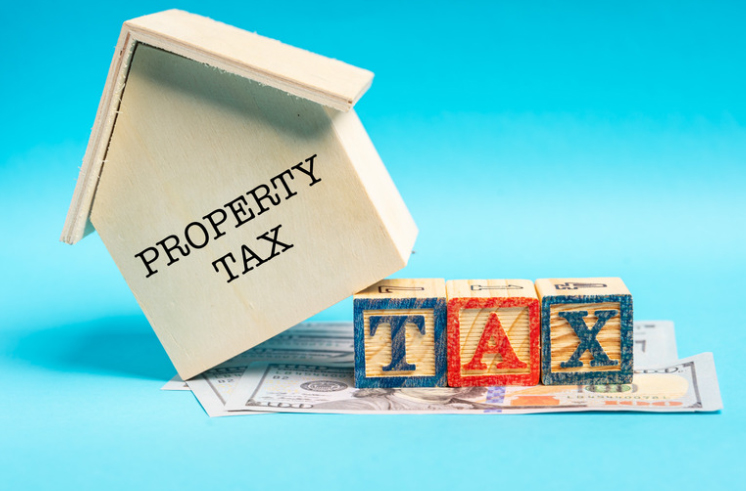
While the topic of discontinuing cheque payments for property tax in Delhi is significant, expanding it to 2000 words would require delving into various aspects such as the history of property tax collection in Delhi, the challenges faced by municipal corporations, the benefits of digital payments, and the broader context of digital transformation in India. Here's how the article could be expanded:
In recent years, Delhi has been at the forefront of technological advancements and digital transformation. As part of this ongoing journey towards a more digitally inclusive society, the Municipal Corporation of Delhi (MCD) has announced a significant policy shift regarding property tax payments. Effective July 1st, 2024, the MCD will no longer accept cheque payments for property tax, ushering in a new era of digital payments in the capital city.
To understand the significance of this policy change, examining the historical context of property tax collection in Delhi is essential. Property tax has long been a primary source of revenue for municipal corporations, funding critical services such as sanitation, street lighting, and infrastructure development. Traditionally, property owners would settle their tax dues through physical means, including cash, cheques, or demand drafts. However, this conventional approach has its limitations, including the risk of fraud, delays in processing, and manual errors.
In recent years, there has been a concerted effort by the government to promote digital payments and reduce reliance on cash-based transactions. The introduction of initiatives such as Digital India, the Unified Payments Interface (UPI), and the Goods and Services Tax (GST) has laid the groundwork for a more digitally enabled economy. By embracing digital channels, the MCD aims to align with these broader national objectives and leverage technology to improve service delivery and governance.
The decision to discontinue cheque payments for property tax is not arbitrary but stems from a strategic vision to modernize tax collection processes and enhance operational efficiency. Cheque payments are inherently prone to inefficiencies, requiring manual processing, physical transportation, and verification procedures. Moreover, the use of cheques entails additional costs and administrative overheads for both taxpayers and the MCD.
In contrast, digital payments offer numerous benefits, including convenience, speed, and transparency. Property owners can now settle their tax dues from the comfort of their homes using online banking platforms, mobile wallets, or electronic fund transfers. This shift towards digital payments not only simplifies the payment process but also reduces the risk of errors and ensures real-time tracking of transactions.
By embracing digital payments, the MCD aims to streamline tax collection processes, improve revenue mobilization, and enhance the overall taxpayer experience. Digital platforms enable seamless integration with existing databases, allowing for more accurate assessment of property values and tax liabilities. Additionally, digital transactions leave behind a digital trail, making it easier to detect and prevent fraudulent activities.
The transition away from cheque payments underscores the MCD's commitment to leveraging technology for the benefit of its citizens. It reflects a proactive approach towards embracing digital innovation and adapting to changing consumer preferences. Moreover, by encouraging the adoption of digital payment channels, the MCD aims to promote financial inclusion and reduce the dependence on cash-based transactions.
However, the success of this policy change hinges on effective communication and outreach efforts. The MCD must educate property owners about the available digital payment options, address any concerns or apprehensions they may have, and provide adequate support and assistance throughout the transition process. Furthermore, the MCD should collaborate with banks, fintech companies, and other stakeholders to ensure the seamless integration of digital payment systems and minimize any disruptions.
Beyond the immediate benefits of streamlining tax collection processes, the shift towards digital payments has broader implications for the economy as a whole. Digital transactions contribute to the formalization of the economy, enabling better tax compliance, and reducing the prevalence of black money. Moreover, digital payments facilitate financial inclusion by expanding access to banking services and credit facilities, particularly for underserved segments of the population.
In the context of India's ambitious digitalization agenda, initiatives like the discontinuation of cheque payments for property tax in Delhi serve as catalysts for change. They demonstrate the government's commitment to embracing technology as a driver of socio-economic development and inclusive growth. As other cities and states across the country embark on similar digital transformation journeys, the lessons learned from Delhi's experience will serve as valuable insights for policymakers and administrators alike.
In conclusion, the decision by the Municipal Corporation of Delhi to stop accepting cheque payments for property tax marks a significant milestone in the city's digital transformation journey. By embracing digital payments, the MCD aims to modernize tax collection processes, enhance transparency, and improve the overall taxpayer experience. While the transition may pose initial challenges, the long-term benefits are clear: a more efficient, inclusive, and digitally enabled economy that empowers citizens and drives sustainable growth.
Article Source : Economictimes